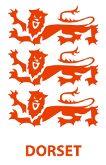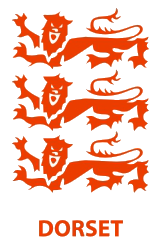Brief History
THE COUNTY UNION
‘The County Union 1923 – 1992’ extracted from the Minute Books of the Executive and the General meetings of the Union; and the records of the Accounts and Competition results which were begun in 1932.
A group of prominent members from five Dorset golf clubs met formally at the Weymouth, Dorchester and County Golf Club in Dorchester (now the Came Down Golf Club) on the fourth of January 1923 and decided to form a County Golf Union. There is no indication in the official Minutes of any impetus or particular reason for wanting to form such a Union, but it is reasonable to assume that they must have been impressed by the success of the unions in the neighbouring counties, and in particular the Devonshire Union.
The first meeting of a ‘Council’ took place three weeks later on the 25th of January in the same venue. The Council decided that ‘it would be advantageous to form a County Golf Union to act as a central authority for determining all questions which may arise and to promote the welfare and interests of the game in the County’ and also ‘to arrange with Railway Companies for increased traveling facilities for golfers’. In addition they decided to adopt the regulations of the Devon County Union, except that instead of having six nominated club representatives, they would have only five. This reduction probably reflected the fact that there were fewer golf clubs in Dorset, and this level of representation lasted until 1930, when it was decided that each of the eleven clubs then affiliated to the Union should be represented.
In the context of a ‘league table’ of County Unions Dorset would occupy a lowly position. It is reported that the Yorkshire clubs were the first to contemplate the formation of such a union in 1893, but their deliberations dragged on into the following year, with the result that our neighbours Hampshire have the honour of heading such a league with the formation of The Hampshire and Isle of Wight Golf Association at the Royal Winchester Golf Club in November 1893, five months ahead of Yorkshire.
The first inter-county championship (six-a-side) was played on the Royal Isle of Wight course at Bembridge in October 1895, which Hants & IOW won by 18 points to 5.
The present-day administrative structure remains fundamentally unchanged; from individual clubs, through their County Unions to the EGU; and for specific matters, such as handicapping, from the EGU through CONGU to the R & A, which is the recognized ruling authority on golf. In the absence of an official record of the first annual golf meeting in 1923, it is fortunate that a newspaper cutting of the event survives, and because of its historical interest, the report and the winners are reproduced in ‘Golf in Hardy country’ as follows: ‘An important step was taken towards the effective organization of the Royal and Ancient game of golf in the County of Dorset by the formation of the County Golf Union, which held its first annual meeting on the course of the senior club at Broadstone last week. Every club in Dorset has affiliated to it, with the exception of the newly munipalised course in Weymouth, which is not likely to remain long outside the federation’. It goes on to record. ‘In the first year’s financial statement of the County Union the total receipts amounted to £46.1s.6d: the expenditure was £20.12s.7d and there was a balance in the bank of £25.8s.11d (about £25.45p).
At this first Annual General Meeting, it was decided that in future the best sixteen scores in the scratch 36-hole medal competition should qualify for the County matchplay tournament. The winner of the scratch medal would be known as the Champion of Dorset and have his name recorded in a book to be kept permanently at Broadstone, and in addition, he would receive a postal order for £5.
The most consistently successful golfer in this recorded history of Dorset golf is Graham Butler. He won his first gold medal in 1959 at the age of twenty-one, playing on his own course at Ferndown and went on to set an unassailable record of ten championship wins. (At the time of publication - 1993) These successes were spread over six courses, and the only one, which seemed to defeat him on these occasions was Broadstone, but it proved to be no obstacle in many other competitions, notably in the 1978 meeting when he won both the Parkstone and Weymouth Cups.
Unfortunately he was unable to collect a round figure of ten medals, because in 1977 the committee finally decided that the cost of the medal was too great and it was replaced by a silver salver. (In 2003 Ferndown GC purchased a gold medal from the DCGU following the reintroduction of them thus making the round figure of ten). After his untimely death at the age of 49, his wife April presented the medals to his club Ferndown. She also donated the ‘Graham Butler Trophy’ which the County Champion would receive in addition to the salver; in her own words, she felt that trophy winners like to be able to see the names of previous champions, something that was lacking with the medal and the salver. Graham achieved over 100 wins for Dorset in inter-county matches between 1959 and 1983 and represented his County in the South Western Championships for 24 years, during which time he won the regional individual title. He also represented the South Western region against the Midlands and captained the side in 1981. His county contemporaries rated Graham as the finest golfer Dorset had ever had a super sportsman and a perfect gentleman.
The history of Dorset would not be complete without the mention of one of our outstanding personalities Ken Longmore. Born in Birmingham in 1918, he first took up the game at Ferndown at the age of 12, but it is to Don Curtis, the professional at Queens Park, that he owes his success. He worked in his shop or on the practice ground six days a week after school, and at the age of 14 was given his first handicap, which matched his age, but which he reduced to 11 in his first year. Such was his progress that at 15 he partnered Curtis in a series of eight exhibition matches against Reg Whitcombe and S H Vine, and won every one!
The closest he came to winning the South West Counties Championship was in 1951 when he was runner-up to Ernest Millward, but he won everything else that the Club and County had to offer, and he has been an integral part of the fabric of Dorset golf for the last 46 years.
Since giving up the competitive side of the game he has devoted a great deal of his time to the advancement of Junior golf. This stems from his own experiences in the 1930s when there were few facilities and not much encouragement for the younger element. He has certainly redressed the balance however, and has been responsible for many of the coaching initiatives and the organization of Junior golf in the county. He has been the Juniors’ delegate for Dorset and the South West counties since 1970, and has served on the Golf Foundation for six years.
His record in competitive golf is phenomenal; in addition to his club successes, which include seven scratch medals and eight Club championships, he won the County title four times and was runner-up on six occasions. His name has been engraved on the prestigious Wimborne Cup no less than seven times. He played in 18 South Western championships and twice captained the county team.
On the administrative side: he has been President of the County Union; elected to the English Golf Union in 1972; served on the Executive Committee for five years; has been President of the SWCGA and Captain of the SW counties team; President of the SW Seniors; and most recently completed a number of years as President of Dorset Junior Golf. He is currently in a Bournemouth nursing home following a stroke, we all wish him well.
Finally it must be put on record the very impressive achievement of the Dorset County Team in winning the English County Championship at King’s Norton in 1992 for the very first time in the history of the County, a unique achievement. The Dorset team of Steve Edgley (Parkstone), Rodger Hearn (Parkstone), Lee James (Broadstone), Tony Lawrence (Sherborne), Peter McMullen (Ferndown), Martyn Thompson (Ferndown) and Michael (Tom) Watson (Weymouth) - under the Captaincy of Doug Pratt (Weymouth) proved without doubt, to be the best in the Country.
This achievement, along with many other historical details are extensively covered in ‘Golf in Hardy Country’ – still available from the County Secretary. Acknowledgement is given for the above extracts from this very interesting book.



